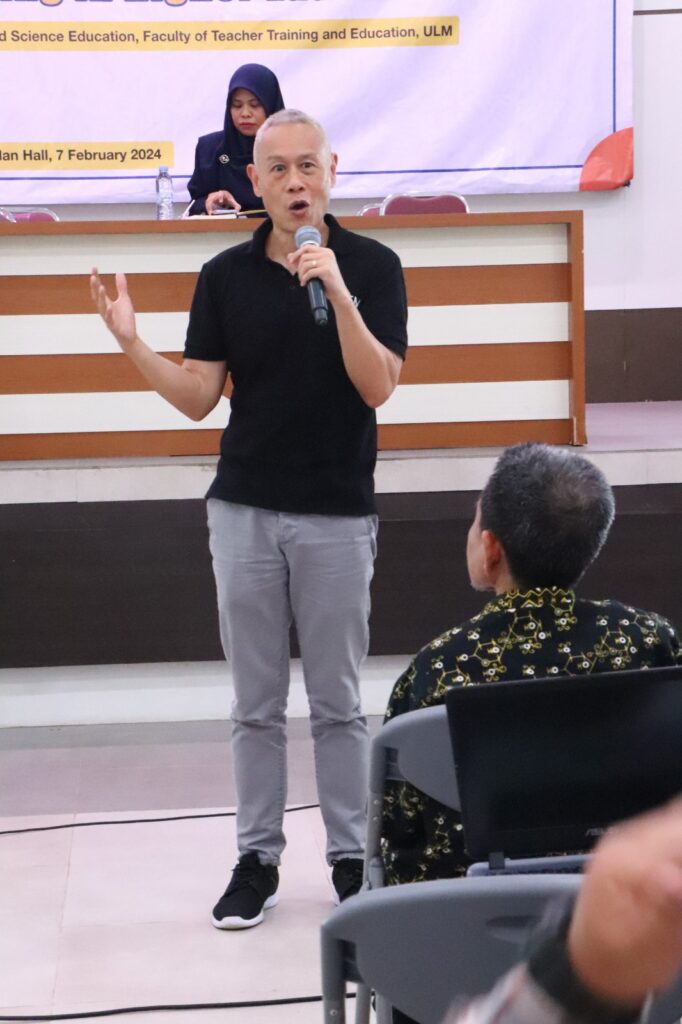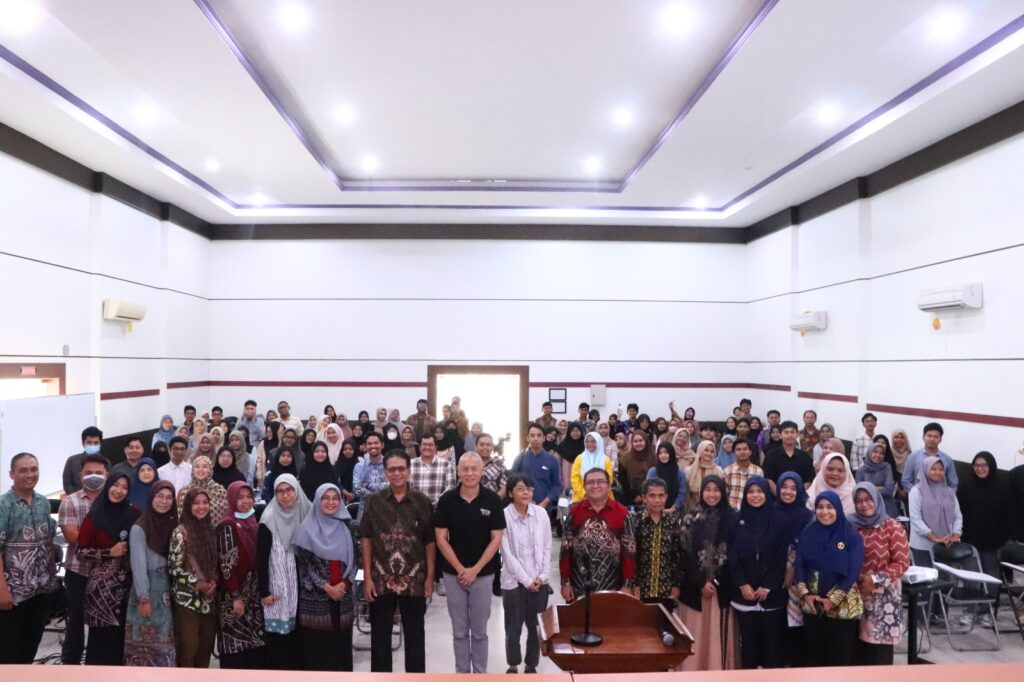07/02/2024


Banjarmasin – In an effort to strengthen the academic atmosphere, the Department of Mathematics and Natural Sciences Education (JPMIPA), Faculty of Teacher Training and Education (FKIP), Lambung Mangkurat University (ULM) held a non-lecture academic activity in the form of a public lecture with Tan Lik Tong, Doctor from Nanyang Technological University which is the 26th best university in the world based on QS World Rank. He is also a researcher who focuses on marine toxicology. This public lecture activity was held on February 7, 2024 at Hasan Bondan Hall, FKIP ULM at 14.00-16.00 WITA.
The activity was opened by the Chairperson of JPMIPA, Syahmani and attended by the Coordinator of the Study Program (Korprodi) in JPMIPA, namely the Chemistry Education Korprodi, Rusmansyah; and Physics Education Korprodi, Abdul Salam as well as lecturers and students in JPMIPA. Serving as moderator and translator, Sauqina, lecturer of Science Education Study Program.
In a lecture with the theme Implementation of Research in Science Learning, Tan Lik Tong explained how he has been doing research. According to him, there are 3 stages in his research, namely conducting the research itself. His research centered on marine toxicology, namely pollution in marine areas, especially detecting pollutants and metal pollution through biological markers, namely shellfish. This research was carried out for 3 years. After that, her second step was to introduce her research to teachers and students in schools. He conducted workshops involving around 40 schools for 2 years. The third step was to build a scientific community by involving teachers, students, and the community or general public. They researched pollution in Singapore National Park for 3 years.
He also gave tips on this process, including: not underestimating or limiting our perceptions as researchers of students’ abilities; the importance of reinforcing and encouraging teachers to understand and be actively involved in this process; not confusing them with complicated understandings of research; and sharing what has been done step by step. (admin)
